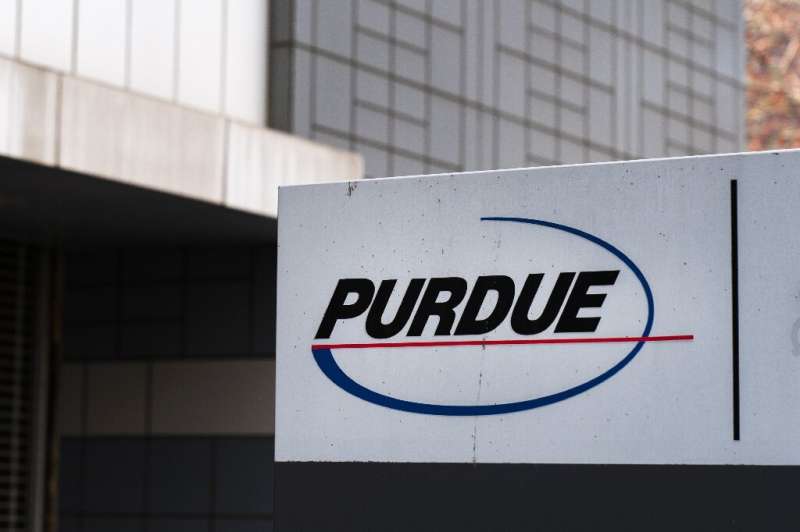Purdue Pharmas has pled guilty to three criminal charges over its aggressive drive to push sales of the prescription opioid OxyContin
US drugmaker Purdue Pharma filed a new bankruptcy plan that would see its founders the Sackler families pay an additional $1.5 billion to settle the company's role in the devastating opioid crisis that has killed half a million people.
But two dozen state attorneys general rejected the offer for a $4.3 billion payout by the Sacklers in a restructuring plan filed late on Monday that would mean the end of the pharmaceutical giant.
"We are disappointed in this plan. While it contains improvements over the proposal that Purdue announced and we rejected in September 2019, it falls short of the accountability that families and survivors deserve," two dozen state officials said in a joint statement.
Purdue in October pleaded guilty to three criminal charges over its aggressive drive to push sales of the prescription opioid OxyContin, which stoked a nationwide addiction crisis.
Its activities, combined with those of other prescription opioid producers and distributors, fed an epidemic of addiction and overdose. Millions of Americans became dependent on the painkillers while the drugmakers reaped billions of dollars in profits.
Purdue offered financial and other incentives, including lucrative speaking gigs for doctors, for pumping out more prescriptions of the company's drugs and downplaying the addictive nature of the medication widely used for pain.
More than 500,000 Americans have died of opioid overdoses—both prescription and non-prescription—since 1999, according to the Centers for Disease Control and Prevention.
'It's an insult'
Facing an avalanche of lawsuits, the company filed for bankruptcy in September 2019, but previous offers to settle the litigation were rejected by state officials
According to the new restructuring plan, the company would provide $500 million immediately and another $1 billion later, while the Sacklers would kick in nearly $4.3 billion over the coming decade on top of $225 million already paid to settle Justice Department charges.
That is far more than the $3 billion than the Sacklers had previously offered. They also would sell their worldwide pharmaceutical businesses within seven years, according to the filing on the $10 billion settlement.
Massachusetts Attorney General Maura Healey lambasted the proposal.
"It's not a settlement, it's an insult," she said in a Facebook post.
She said the "criminal company that made billions off the opioid epidemic... would hide damning documents from the public, force the government to own an opioid business, and protect the wealth and legacy of its billionaire owners, the Sacklers."
The Sacklers worth fell amid the crisis, but was still estimated at around $10.8 billion late last year, according to Forbes, which said much of the wealth came from Purdue. They were known as high-profile philanthropists but museums and galleries worldwide have rebuffed their donations because of the opioid crisis fallout.
If the offer is accepted by the bankruptcy court, the Connecticut-based company will create a new entity to manage the funds "dedicated to abating the opioid crisis, developing and distributing medicines to reverse opioid overdoses and treat opioid addiction, and otherwise taking into account long-term public health interests relating to the opioid crisis," the company said in a statement.
Purdue chairman Steve Miller said: "With drug overdoses still at record levels, it is past time to put Purdue's assets to work addressing the crisis. We are confident this plan achieves that critical goal."
© 2021 AFP






















